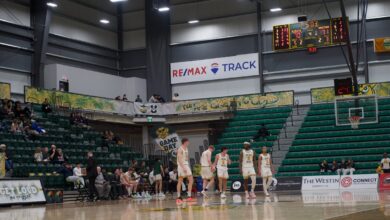Point counterpoint: whether or not to scrap the draft
 Cameron Lewis
Cameron LewisPoint: Scrap the draft, teams shouldn’t be rewarded for sucking
The draft is the worst part of North American professional sports.
It must be really weird hearing that from a fan of the Edmonton Oilers, but ironically, it’s the performance of those same Oilers that has completely deterred me from the institution of the draft. Simply put, having a system that rewards the worst teams in the league for their incompetence ruins the league’s year-by-year competitiveness and forces players into positions that may not be the best for their individual careers.
The idea of the draft is to ensure competitiveness — as it creates a way for bad teams in terrible markets to get their fair chance at acquiring top level talent — but it does the exact opposite. Year after year, there exists a handful of teams who shamelessly field horrific rosters because it’ll give them the best chance possible at getting the top pick in the draft, or the lottery ticket.
Basically, it pays to suck. It doesn’t matter if it’s awful for the product of the game, or for the fans, because the leagues insist on it because these awful teams will be rewarded at the end of the season.
Think of how awful it is watching teams that aren’t actually trying to win, now imagine being a player thrown into one of these situations at the beginning of their career. They completely lose their way because the management staff who employs them surrounds them with a group, again, that’s trying to lose.
There’s a simple remedy for this that won’t completely destroy what the draft was originally trying to accomplish. Think back to the NHL offseason in 2012 when Justin Schultz used a loophole in the CBA to become an Unrestricted Free Agent four years after being drafted by the Anaheim Ducks. He chose to sign with the Oilers because, for some reason, he thought it would be best for his development.
Now, imagine each team in the league has one free agent ticket. They can select any undrafted player and offer them the same entry level contract under the league’s salary cap with a limit placed on bonuses. After each team used their one draft ticket, the remaining players would go into the traditional draft.
This solves two issues while maintaining the continuity of competitiveness and fairness. First, it gives players back their agency so they can choose the best situation for their career by signing with a team that they trust. Also, it stops teams from intentionally tanking because there’s no guarantee whatsoever that they’ll be given a free shot at the year’s prized prospect.
Players play where they want, nobody has a financial advantage over anybody else, and franchises are rewarded for being respectable, rather than terrible. Problem solved. — Cam Lewis
Counterpoint: Relax, the draft might be flawed, but it’s necessary
Yes, the draft may be flawed, and may get some teams to foolishly tank, but it is still a necessary evil. Sure, giving every team a ticket seems like a nice idea, but what happens if you’re a city like Winnipeg or Buffalo or Edmonton, neutered of your chance to offer more money, unable to get star free agents because of your small market, and now without the safety net of the draft? If gaining young prospects starts to act like free agency, I highly doubt Connor McDavid is going to be considering Buffalo or Edmonton. In fact, it wouldn’t be too hard to see what would happen: every top prospect would be either choosing contending teams or big markets like New York and Los Angeles. This would kill competitive balance in the NHL, as the current contenders would be getting all the top young prospects every year while the rest of the league would have to scrap for their leftovers.
The real problem is when front offices look at the draft as an all-encompassing solution that can absolve every team of all their problems. They look at a team that has built through the draft like the Chicago Blackhawks and assume the same will happen to them. However, the reality is that for every Chicago there are five teams like Edmonton, that get a ton of high draft picks but make lots of mistakes along the way and end up stuck in a cycle of losing. When fans see this happen, they blame the draft, but it often just comes down to organizational incompetence.
Sure, the draft does encourage tanking, and that is a serious problem in sports, but getting rid of it altogether is not the answer. There are really only two ways for bad teams to get better: free agency and the draft. For some teams, the former isn’t even an option, so they’re stuck with the draft as their only fighting chance to contend for a Stanley Cup. And yes, that type of thinking does tend to encourage teams to tank away their seasons, but there are better options than abolishing the draft. For example, the NHL could try to give every non-playoff team even odds for the first overall pick, instead of making it exceptionally easier for the worst teams. That way, bad teams still have a chance, but it allows them to not be obligated to lose just so they can get top prospects. With a 1 ticket system, prospects would just be joining contenders and creating super teams while leaving everyone else to suffer, but with at least some semblance of a draft, every team in the draft has a chance. — Jason Shergill




